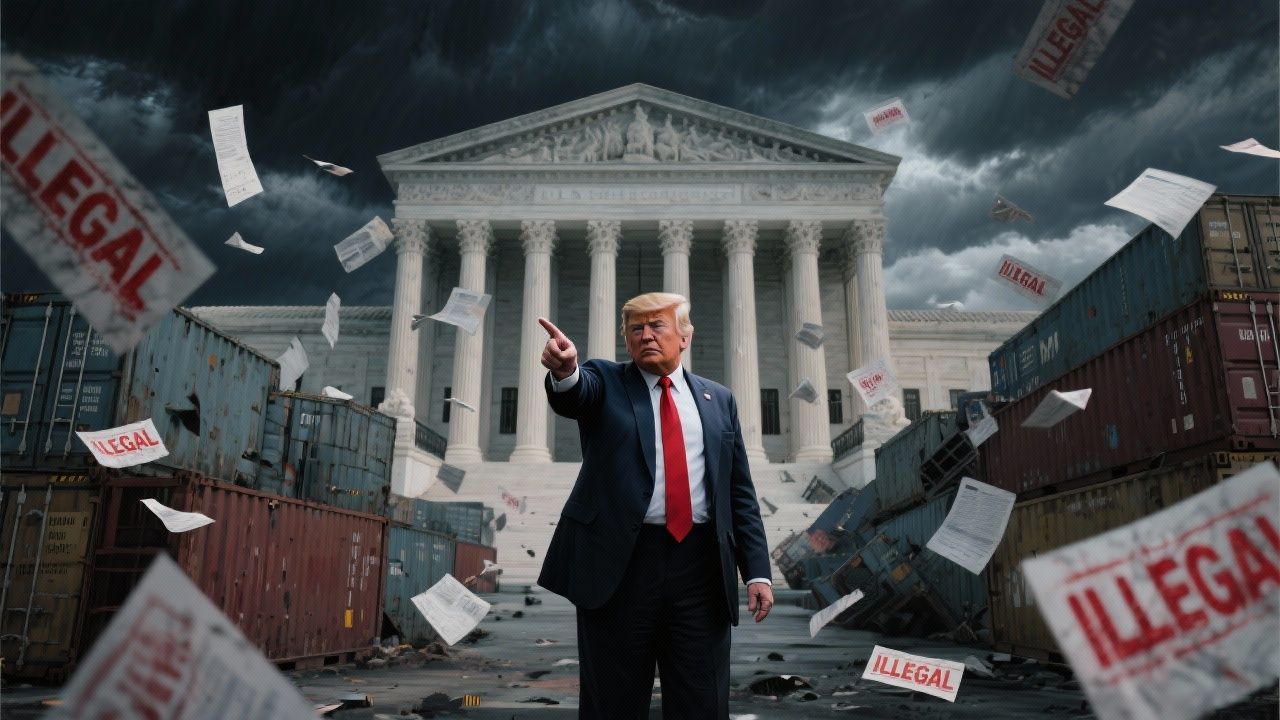The ruling that shakes the foundation of Trump’s trade war

A federal appeals court has dismantled the legal scaffolding of Donald Trump’s trade agenda, ruling that the former president’s most expansive tariffs were unconstitutional and exceeded his powers under federal emergency law.
In a 7-4 decision, the U.S. Court of Appeals for the Federal Circuit held that only Congress—not the president—has the authority to impose tariffs, striking directly at the core of Trump’s economic doctrine.
The ruling pauses until October 14, giving Trump time to seek an appeal before the Supreme Court. For now, his tariffs remain in effect, but their survival suddenly hinges on the high court’s willingness to redefine the constitutional limits of the presidency.
How Trump bent the law
The legal battle centers on Trump’s use of the International Emergency Economic Powers Act (IEEPA), a 1977 law giving presidents wide latitude during national emergencies. Trump claimed it allowed him to levy tariffs on nearly all imports—slapping 10 percent levies across the board and punishing trading partners like China, Mexico, and Canada with duties as high as 50 percent.
The court wasn’t persuaded. As one judge wrote, tariffs are “the quintessence of congressional authority,” and the emergency law Trump invoked “neither mentions tariffs (or any of its synonyms) nor contains safeguards to constrain presidential use of them”.
Trump’s furious response
In familiar fashion, Trump immediately lashed out. On Truth Social, he pilloried the court as “Highly Partisan” and warned that if his tariffs were struck down, it would “literally destroy the United States of America”. The administration framed the ruling as a threat not just to Trump’s trade policy but to America’s national security, with Commerce Secretary Howard Lutnick cautioning it could “derail critical foreign negotiations”.
White House spokesman Kush Desai doubled down, insisting Trump “lawfully exercised the tariff powers granted to him by Congress.”
What this means for business and consumers
While the tariffs remain intact at least through mid-October, the uncertainty has rattled global markets. Importers continue to shoulder inflated costs, which feed into consumer prices. For small businesses like the plaintiffs in the suit, the ruling is a vindication after months of mounting costs and unpredictable trade conditions.
“This decision protects American businesses and consumers from the uncertainty and harm caused by these unlawful tariffs,” said Jeffrey Schwab of the Liberty Justice Center, which represented several of the small firms challenging the policy.
The constitutional stakes heading into the Supreme Court
The clash now heads to the nation’s highest court, where the justices must decide whether the president can invoke emergency powers to circumvent Congress’s explicit authority to levy taxes and tariffs. Legal scholars describe it as the most consequential separation-of-powers case in trade law in a generation, one that could either hand Trump a stunning legal comeback or cement a sharp rebuke of presidential overreach.
As Neal Katyal, a lawyer for the challengers, put it: “This decision is a powerful reaffirmation of our nation’s core constitutional commitments, especially the principle that presidents must act within the rule of law”.
Either way, the stage is set for a Supreme Court battle that could redefine the boundaries of executive economic authority in America.
